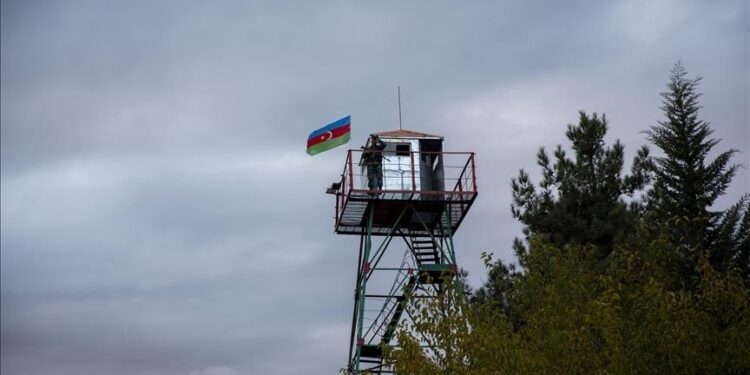ANKARA
The Speaker of Armenia’s Parliament, Alen Simonyan, said Monday that Nagorno-Karabakh “does not exist.”
“Legally, Nagorno-Karabakh does not exist as an entity.
“There are only our (Artsakh) compatriots whose problems the Armenian government is addressing in an excellent way,” Simonyan said.
His remarks came after opposition members of the Armenian parliament asked him to explain why he has been blocking sessions of a joint commission of Armenian and Karabakh lawmakers.
“I think that we must very seriously consider abolishing that format because Nagorno-Karabakh, Artsakh officials don’t exist anymore and nobody has such a status in Armenia anymore,” Simonyan said.
He added that the title “president of Nagorno-Karabakh” no longer exists.
Simonyan alluded to a decree which Samvel Shahramanian, the titular head of the unrecognized Nagorno-Karabakh statelet, signed last September after Azerbaijan restored Baku’s full control of the territory.
“To dissolve all state institutions and organizations under their subordination before January 1, 2024, the Republic of Nagorno-Karabakh (Artsakh) ceases to exist,” the decree said, giving the name of the self-styled region, which had existed in name only.
“After the entry into force of this decree, the population of Nagorno-Karabakh, including those located outside the republic, should consider the conditions of reintegration presented by the Republic of Azerbaijan in order to make an independent and individual decision on the possibility of staying (returning) to Nagorno-Karabakh in the future,” the decree said.
Relations between Azerbaijan and Armenia have been tense since 1991, when the Armenian military occupied Nagorno-Karabakh, a territory internationally recognized as part of Azerbaijan, and seven adjacent regions.
The so-called “Nagorno-Karabakh Republic” was proclaimed in 1991, but it was not recognized by any UN member state.
In the fall of 2020, Azerbaijan liberated several cities, villages and settlements in Karabakh from Armenian occupation during 44 days of clashes. The war ended with a Russia-brokered cease-fire.






